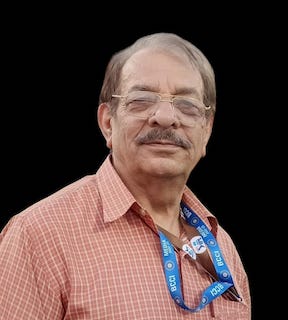In recent years, the rapid expansion of social media has posed a significant challenge to print media, not only worldwide but also in India. The ubiquity of social media platforms has transformed the way news and live content are consumed, particularly on the ubiquitous handheld devices of our era, the mobile.

Print media, which once held sway for over two centuries, now finds itself in a precarious position due to the rapid ascent of social media. The internet, the progenitor of social media, was born on January 1, 1983, and, through its union with Google, which came into being on September 4, 1998, gave birth to the immensely powerful and constructive/disruptive force that is social media. This dynamic and highly profitable offspring has effectively brought print media to the brink of obsolescence with its speed and unparalleled reach.
The print media industry, once steeped in pride and prestige, now relies heavily on government advertisements just to stay afloat. It appears as though this industry is teetering on the verge of extinction. The situation has become such that organizations, both government and non-governmental, must increasingly adopt social media, which thrives on the backbone of the internet, for various operations and communications.
One notable advantage of social media is its ability to swiftly alert security agencies to any antisocial or illegal activities reported online. Moreover, courts are now able to obtain accurate information from social media, expediting the delivery of justice to the public.
Given the pervasive reach of social media across the country, it seems likely that every citizen will soon become a valuable resource for the government and social institutions. In light of these developments, print media must evolve into electronic media to remain relevant. Additionally, state, national, and global institutions must recognize the significance of social media in today’s society.
However, it is crucial to acknowledge that, before social media potentially misleads society, stringent regulations are necessary to govern the internet, Google, and other media-based platforms. This action must be taken expeditiously, akin to the speed of a rocket, to ensure that this valuable modernity, known as social media, does not spiral out of control and become a disruptive force.

Arvind Sharma is an award winning bi-lingual journalist with more than 20 years of experience.
He has worked with Divya Himachal, Dainik Jagran, Dainik Bhasker, Vir Partap, Ajit and PTI.
In 2010, he was conferred the Himachal Kesri journalism award. He reports on the Tibetan Government in Exile, politics, sports, tourism and other topics. He lives in Dharamshala.



